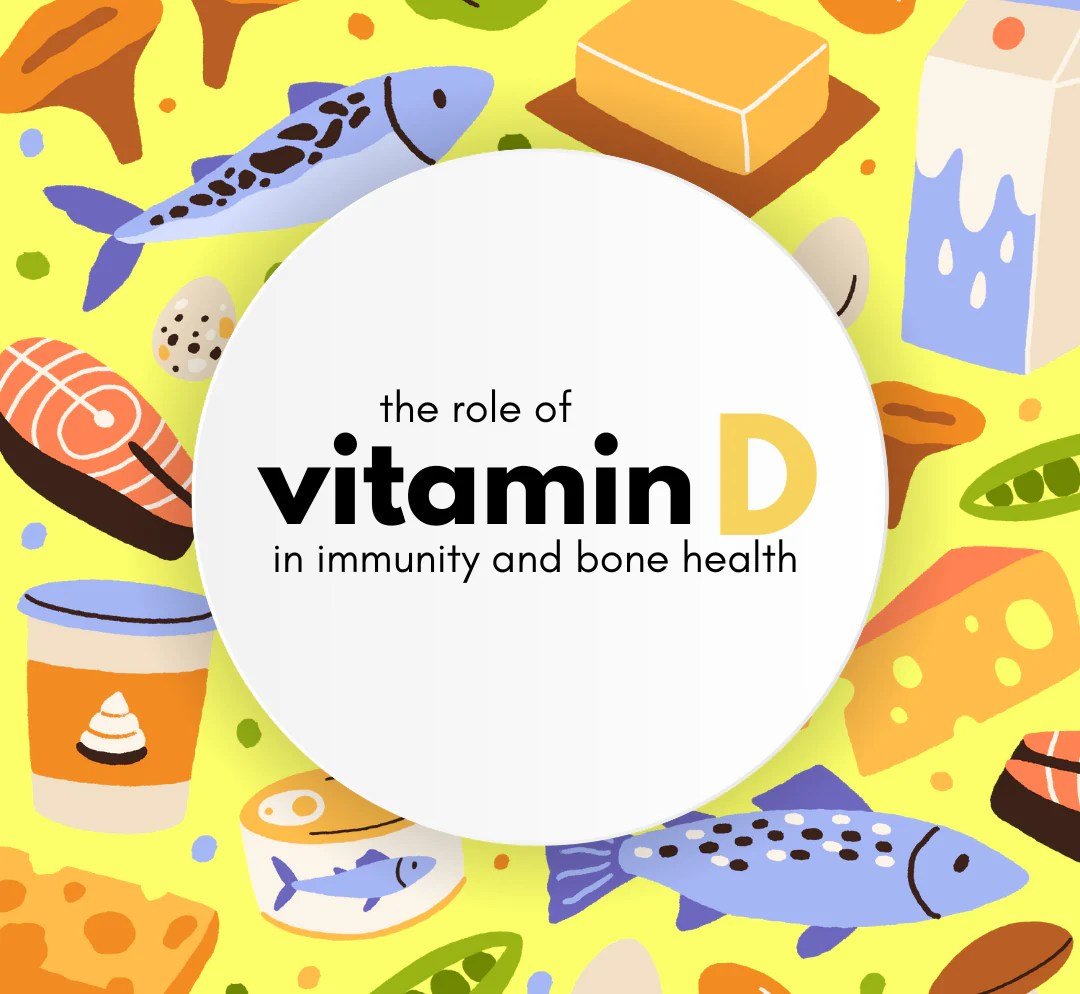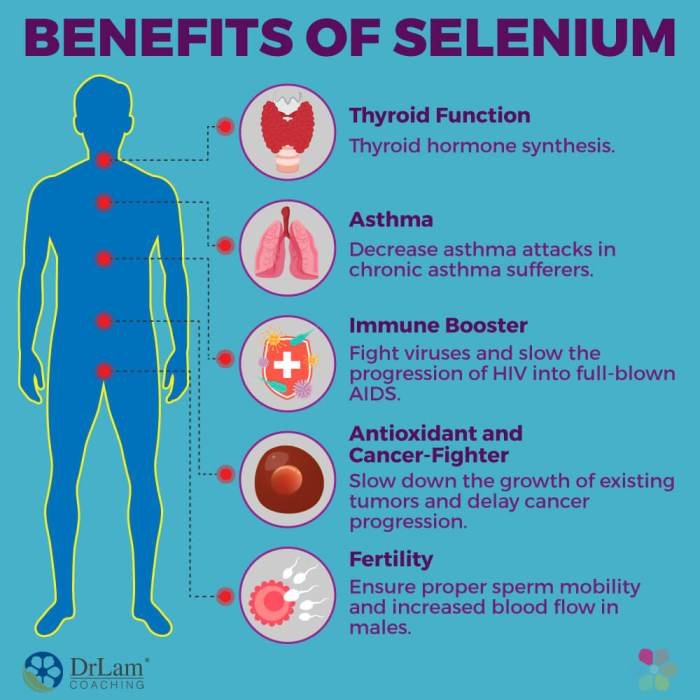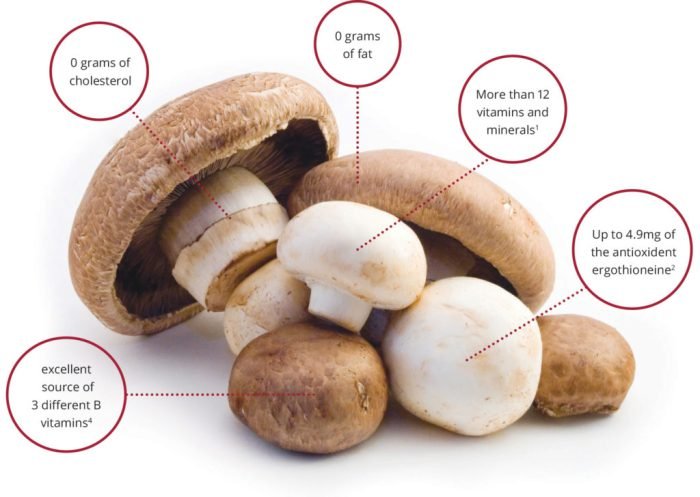The health benefits of portobello mushrooms take center stage, inviting you to explore a world of culinary delights and wellness wonders. This versatile ingredient, often recognized for its savory flavor and meaty texture, boasts a treasure trove of nutrients that contribute to overall well-being.
From boosting your immune system to supporting cardiovascular health, portobello mushrooms offer a delicious path to a healthier lifestyle.
These mushrooms are packed with essential vitamins, minerals, and antioxidants, making them a valuable addition to any diet. They are a rich source of selenium, a powerful antioxidant that helps protect cells from damage. Portobello mushrooms also contain significant amounts of potassium, which plays a vital role in regulating blood pressure and muscle function.
Additionally, their high fiber content aids in digestion and promotes satiety, making them a beneficial choice for weight management.
Nutritional Value of Portobello Mushrooms

Portobello mushrooms, known for their robust flavor and meaty texture, are a nutritional powerhouse packed with essential vitamins, minerals, and antioxidants. These fungi offer a wide range of health benefits, making them a valuable addition to any diet.
Nutrient Profile of Portobello Mushrooms
The nutrient profile of portobello mushrooms is impressive, making them a valuable source of essential vitamins, minerals, and antioxidants.
Vitamins and Minerals
- Vitamin D:Portobello mushrooms are one of the few plant-based sources of vitamin D, a crucial nutrient for bone health, immune function, and cell growth. Exposure to sunlight is the primary source of vitamin D, but mushrooms, especially portobello, can provide a good amount.
One cup of cooked portobello mushrooms provides approximately 10% of the recommended daily intake of vitamin D.
- B Vitamins:Portobello mushrooms are rich in B vitamins, including riboflavin, niacin, and pantothenic acid. These vitamins play vital roles in energy metabolism, brain function, and cell growth.
- Potassium:Portobello mushrooms are a good source of potassium, an essential mineral that helps regulate blood pressure, muscle function, and nerve transmission.
- Selenium:This trace mineral is a potent antioxidant that protects cells from damage caused by free radicals. Portobello mushrooms are a good source of selenium, contributing to overall health and well-being.
- Copper:Copper is essential for various bodily functions, including the formation of red blood cells, energy production, and iron metabolism. Portobello mushrooms contain a good amount of copper.
Antioxidants
- Ergothioneine:Portobello mushrooms are a rich source of ergothioneine, a potent antioxidant that protects cells from damage caused by free radicals. Ergothioneine is particularly effective in protecting the brain and other vital organs from oxidative stress.
- Selenium:As mentioned earlier, selenium is also a potent antioxidant that helps protect cells from damage caused by free radicals.
- Other Antioxidants:Portobello mushrooms contain other antioxidants, such as glutathione and vitamin C, which contribute to overall health and well-being.
Comparison with Other Mushroom Varieties
Portobello mushrooms stand out for their high vitamin D content compared to other mushroom varieties. While most mushrooms are good sources of B vitamins, potassium, and selenium, portobello mushrooms often contain higher amounts of these nutrients.
Health Benefits of Portobello Mushroom Nutrients
The nutrient profile of portobello mushrooms provides a range of health benefits:
Vitamin D
- Bone Health:Vitamin D plays a crucial role in calcium absorption, which is essential for strong bones and the prevention of osteoporosis.
- Immune Function:Vitamin D supports a healthy immune system by regulating the production of immune cells.
- Cell Growth:Vitamin D is involved in cell growth and development, contributing to overall health.
B Vitamins
- Energy Metabolism:B vitamins are essential for energy production, helping convert food into energy.
- Brain Function:B vitamins are crucial for brain function, including memory, concentration, and mood regulation.
- Cell Growth:B vitamins are involved in cell growth and development, contributing to overall health.
Potassium
- Blood Pressure Regulation:Potassium helps regulate blood pressure by counteracting the effects of sodium.
- Muscle Function:Potassium is essential for muscle function, including muscle contraction and relaxation.
- Nerve Transmission:Potassium plays a vital role in nerve transmission, ensuring proper communication between the brain and the body.
Selenium
- Antioxidant Protection:Selenium is a potent antioxidant that protects cells from damage caused by free radicals.
- Immune Function:Selenium supports a healthy immune system by regulating the production of immune cells.
- Thyroid Function:Selenium is essential for thyroid hormone production, which plays a vital role in metabolism and overall health.
Copper
- Red Blood Cell Formation:Copper is essential for the formation of red blood cells, which carry oxygen throughout the body.
- Energy Production:Copper plays a role in energy production, helping convert food into energy.
- Iron Metabolism:Copper is essential for iron metabolism, ensuring the body can properly absorb and use iron.
Ergothioneine
- Antioxidant Protection:Ergothioneine is a potent antioxidant that protects cells from damage caused by free radicals.
- Brain Health:Ergothioneine is particularly effective in protecting the brain from oxidative stress, contributing to cognitive function and memory.
- Organ Protection:Ergothioneine helps protect other vital organs from oxidative stress, promoting overall health.
Portobello Mushrooms and Immune System Health

Portobello mushrooms are not just a delicious addition to your meals; they also offer a significant boost to your immune system. These fungi are packed with nutrients that play a vital role in protecting your body against infections and diseases.
Immune-Boosting Nutrients in Portobello Mushrooms
Portobello mushrooms are a treasure trove of nutrients that contribute to a robust immune system. Let’s delve into the key players:
- Selenium: This mineral acts as an antioxidant, helping to protect cells from damage caused by free radicals. Selenium also plays a crucial role in the production of white blood cells, which are essential for fighting off infections.
- Vitamin D: Portobello mushrooms are one of the few non-animal sources of vitamin D, which is essential for immune function. Vitamin D helps regulate the production of immune cells and enhances their ability to fight off pathogens.
- Copper: This trace mineral is involved in the production of white blood cells and antibodies, both of which are crucial for a strong immune response.
- Polysaccharides: Portobello mushrooms are rich in polysaccharides, complex carbohydrates that have been shown to stimulate the immune system. These polysaccharides act as immune modulators, enhancing the activity of immune cells and helping to regulate the immune response.
- Antioxidants: Portobello mushrooms are rich in antioxidants, such as glutathione and ergothioneine, which help to neutralize free radicals and reduce oxidative stress. This, in turn, supports a healthy immune system and reduces the risk of chronic diseases.
Potential Benefits of Portobello Mushrooms for Immune Health
The presence of these immune-boosting nutrients suggests that regular consumption of portobello mushrooms could offer several benefits for your immune system:
- Enhanced Immune Response: The nutrients in portobello mushrooms contribute to the production and function of immune cells, leading to a more robust and effective immune response to infections and diseases.
- Reduced Risk of Infections: A strong immune system is less susceptible to infections. Portobello mushrooms, with their immune-boosting properties, may help reduce the risk of common infections, such as colds and flu.
- Anti-Inflammatory Effects: Some studies suggest that certain compounds in portobello mushrooms, such as polysaccharides, may have anti-inflammatory effects, helping to reduce inflammation throughout the body. This is beneficial for overall health and can help to manage chronic inflammatory conditions.
- Improved Gut Health: Portobello mushrooms are a good source of prebiotics, which are types of fiber that feed the beneficial bacteria in your gut. A healthy gut microbiome is essential for a strong immune system, as it plays a significant role in regulating immune function.
Portobello Mushrooms and Cardiovascular Health
Portobello mushrooms, with their rich nutritional profile, have been linked to potential benefits for cardiovascular health. These benefits stem from the unique combination of antioxidants, vitamins, and minerals found in these hearty fungi.
Cholesterol Levels, Health benefits of portobello mushroom
Portobello mushrooms can play a role in managing cholesterol levels, a crucial factor in heart health. Studies have shown that consuming portobello mushrooms can help lower LDL cholesterol, often referred to as “bad” cholesterol. This reduction in LDL cholesterol is attributed to the presence of beta-glucans, a type of soluble fiber found in portobello mushrooms.
Beta-glucans have been shown to bind to cholesterol in the digestive tract, preventing its absorption into the bloodstream.
“A study published in the Journal of Agricultural and Food Chemistry found that consuming portobello mushrooms for eight weeks significantly reduced LDL cholesterol levels in participants.”
Portobello Mushrooms and Digestive Health

Portobello mushrooms, with their rich nutritional profile, play a significant role in promoting digestive health. They are a valuable source of dietary fiber, which is essential for maintaining a healthy gut.
Fiber Content and Gut Health
Dietary fiber is a type of carbohydrate that the human body cannot digest. It acts as a prebiotic, feeding the beneficial bacteria in the gut, known as the gut microbiota. These bacteria play a crucial role in various bodily functions, including digestion, nutrient absorption, and immune system regulation.The fiber content in portobello mushrooms contributes to:
- Improved Digestion:Fiber adds bulk to stool, making it easier to pass through the digestive tract, preventing constipation and promoting regular bowel movements.
- Enhanced Gut Microbiota:Fiber acts as a food source for beneficial gut bacteria, promoting their growth and diversity, leading to a healthier gut microbiome.
- Reduced Risk of Digestive Disorders:A balanced gut microbiome has been linked to a lower risk of developing digestive disorders like irritable bowel syndrome (IBS), inflammatory bowel disease (IBD), and colorectal cancer.
Potential Benefits for Managing Digestive Disorders
While further research is needed, some studies suggest that portobello mushrooms may have potential benefits for managing digestive disorders.
- IBS:The fiber content in portobello mushrooms can help regulate bowel movements and reduce symptoms of IBS, such as bloating, abdominal pain, and diarrhea or constipation.
- IBD:Portobello mushrooms contain antioxidants and anti-inflammatory compounds that may help reduce inflammation in the gut, which is a key factor in IBD.
- Colorectal Cancer:Studies have shown that a diet rich in fiber, like that found in portobello mushrooms, can reduce the risk of developing colorectal cancer.
Portobello Mushrooms and Weight Management
Portobello mushrooms can play a role in weight management due to their nutritional profile. They are naturally low in calories and high in fiber, making them a satisfying and filling food choice that can aid in weight loss or maintenance.
Fiber Content and Satiety
Fiber is an essential nutrient that contributes to feelings of fullness and satiety. Portobello mushrooms are a good source of dietary fiber, which can help slow down digestion, regulate blood sugar levels, and promote a sense of fullness. This can help reduce overall calorie intake and support weight management efforts.
A study published in the journal “Appetite” found that consuming a high-fiber diet was associated with reduced hunger and increased satiety, suggesting that fiber-rich foods like portobello mushrooms can play a role in appetite control.
Portobello Mushrooms and Antioxidants

Portobello mushrooms are a rich source of antioxidants, which are compounds that help protect your body from damage caused by free radicals. Free radicals are unstable molecules that can damage cells and contribute to various health problems, including heart disease, cancer, and premature aging.
Antioxidants neutralize free radicals, preventing them from causing harm.
Portobello mushrooms are a great source of vitamins and minerals, including selenium, which is known to support immune function. If you’re looking for a healthcare provider who can help you maintain your overall health and wellness, you can easily find one through united health care find a provider.
With their guidance, you can make informed decisions about your health, including incorporating more portobello mushrooms into your diet.
Antioxidant Compounds in Portobello Mushrooms
Portobello mushrooms contain a variety of antioxidants, including:
- Vitamin C:A powerful antioxidant that helps protect cells from damage caused by free radicals. It also plays a role in collagen production, which is essential for maintaining healthy skin, bones, and blood vessels.
- Selenium:An essential mineral that acts as an antioxidant by protecting cells from oxidative stress. Selenium is also important for immune function and thyroid hormone production.
- Ergothioneine:A unique antioxidant found in mushrooms, which has been shown to protect cells from damage caused by free radicals and inflammation. It is also thought to play a role in brain health and cognitive function.
- Phenolic Compounds:These compounds, including flavonoids and phenolic acids, are found in abundance in portobello mushrooms. They exhibit potent antioxidant properties, contributing to the mushroom’s overall health benefits.
The Role of Antioxidants in Protecting the Body from Free Radical Damage
Antioxidants work by donating electrons to free radicals, stabilizing them and preventing them from causing further damage. This process is crucial for protecting cells from oxidative stress, which is a major contributor to aging and various diseases.
Portobello mushrooms are a delicious and nutritious addition to any diet. They are packed with vitamins, minerals, and antioxidants, making them a great choice for boosting your overall health. You can find out more about the health benefits of portobello mushrooms and other nutritious foods on turquoise health , a website dedicated to promoting healthy living.
From recipes to fitness tips, turquoise health has something for everyone. Portobello mushrooms are particularly beneficial for their high fiber content, which aids in digestion and weight management.
Potential Benefits of Consuming Portobello Mushrooms for Reducing Oxidative Stress
The antioxidant properties of portobello mushrooms may offer several potential benefits for reducing oxidative stress, including:
- Improved Cardiovascular Health:Oxidative stress can damage blood vessels and contribute to heart disease. The antioxidants in portobello mushrooms may help protect against this damage by reducing inflammation and improving blood flow.
- Reduced Risk of Cancer:Oxidative stress can damage DNA and contribute to the development of cancer. The antioxidants in portobello mushrooms may help protect against this damage by neutralizing free radicals and promoting DNA repair.
- Improved Brain Function:Oxidative stress can damage brain cells and contribute to cognitive decline. The antioxidants in portobello mushrooms may help protect against this damage by reducing inflammation and promoting brain health.
- Reduced Risk of Chronic Diseases:Oxidative stress is a contributing factor to many chronic diseases, including diabetes, arthritis, and Alzheimer’s disease. The antioxidants in portobello mushrooms may help protect against these diseases by reducing inflammation and oxidative stress.
Portobello Mushrooms and Cancer Prevention

The potential link between portobello mushroom consumption and cancer prevention has garnered significant interest in the scientific community. While further research is needed, emerging evidence suggests that certain compounds found in portobello mushrooms may possess anticancer properties, potentially contributing to a reduced risk of developing certain cancers.
Anticancer Compounds in Portobello Mushrooms
Portobello mushrooms contain a diverse array of bioactive compounds that have been shown to exhibit anticancer effects in laboratory studies. These compounds include:
- Polysaccharides:These complex carbohydrates have demonstrated antitumor activity in various studies, including inhibiting the growth of cancer cells and boosting the immune system’s ability to fight cancer.
- Lentinan:A polysaccharide found in portobello mushrooms, lentinan has been shown to enhance the immune system’s response to cancer cells, leading to improved survival rates in some cancer patients.
- Ergosterol:This compound, when exposed to ultraviolet light, converts into vitamin D2, which has been linked to a reduced risk of certain cancers, such as colon and breast cancer.
- Selenium:A trace mineral found in portobello mushrooms, selenium is an essential nutrient that plays a role in protecting cells from damage and may help prevent cancer development.
Potential Benefits of Portobello Mushrooms for Reducing Cancer Risk
While the research on the link between portobello mushrooms and cancer prevention is still ongoing, several studies have shown promising results:
- Breast Cancer:Studies have shown that women who consume a diet rich in mushrooms, including portobellos, may have a lower risk of developing breast cancer.
- Prostate Cancer:Research suggests that men who consume mushrooms regularly may have a reduced risk of developing prostate cancer.
- Colorectal Cancer:Portobello mushrooms contain fiber, which may help prevent colorectal cancer by promoting regular bowel movements and reducing the time that carcinogens spend in the colon.
Portobello Mushrooms and Blood Sugar Control

Portobello mushrooms, with their low glycemic index (GI) and potential to enhance insulin sensitivity, may play a role in blood sugar regulation. This can be particularly beneficial for individuals managing diabetes or those looking to maintain healthy blood sugar levels.
Glycemic Index and Blood Sugar Response
The glycemic index (GI) measures how quickly a food raises blood sugar levels after consumption. Foods with a low GI, like portobello mushrooms, are digested and absorbed slowly, leading to a gradual rise in blood sugar. This can help prevent sharp spikes and crashes in blood sugar levels, which are often associated with high-GI foods.
For individuals with diabetes, managing blood sugar fluctuations is crucial for preventing complications.
Insulin Sensitivity and Portobello Mushrooms
Insulin sensitivity refers to the body’s ability to effectively use insulin to lower blood sugar. Some studies suggest that portobello mushrooms may contribute to improved insulin sensitivity. This could be attributed to their fiber content, which helps regulate blood sugar absorption, and their potential to stimulate the production of insulin-like growth factor-1 (IGF-1), a hormone that plays a role in glucose metabolism.
Portobello Mushrooms in Cooking: Health Benefits Of Portobello Mushroom

Portobello mushrooms, with their meaty texture and savory flavor, are a culinary delight that has gained immense popularity in recent years. Their versatility in cooking allows them to be incorporated into a wide array of dishes, from hearty mains to light appetizers.
Culinary Uses of Portobello Mushrooms
Portobello mushrooms are a versatile ingredient that can be used in a variety of dishes. They can be grilled, sautéed, roasted, stuffed, or even used as a substitute for meat in vegetarian dishes. Their unique flavor profile and texture make them a delicious addition to any meal.
| Dish | Flavor Profile | Texture | Versatility |
|---|---|---|---|
| Grilled Portobello Mushrooms | Earthy, savory, smoky | Tender, slightly chewy | Can be served as a main course, appetizer, or side dish |
| Stuffed Portobello Mushrooms | Savory, flavorful, adaptable | Tender, juicy | Can be filled with a variety of ingredients, such as cheese, vegetables, or meat |
| Portobello Mushroom Burgers | Meaty, savory, flavorful | Tender, juicy | Can be served on buns or in salads |
| Sautéed Portobello Mushrooms | Earthy, savory, garlicky | Tender, slightly crispy | Can be added to pasta dishes, stir-fries, or salads |
| Roasted Portobello Mushrooms | Earthy, savory, caramelized | Tender, slightly chewy | Can be served as a side dish or as part of a main course |
Popular Recipes Featuring Portobello Mushrooms
Here are a few examples of popular recipes featuring portobello mushrooms:
- Grilled Portobello Mushroom with Balsamic Glaze: This recipe features portobello mushrooms that are grilled to perfection and then drizzled with a sweet and tangy balsamic glaze.
- Stuffed Portobello Mushrooms with Spinach and Feta: This recipe features portobello mushrooms that are stuffed with a savory mixture of spinach, feta cheese, and herbs.
- Portobello Mushroom Burgers with Avocado and Tomato: This recipe features portobello mushrooms that are grilled and served on buns with avocado, tomato, and other toppings.
- Sautéed Portobello Mushrooms with Garlic and Herbs: This recipe features portobello mushrooms that are sautéed with garlic, herbs, and olive oil.
- Roasted Portobello Mushrooms with Rosemary and Thyme: This recipe features portobello mushrooms that are roasted with rosemary, thyme, and olive oil.
Portobello Mushrooms and Sustainability
Portobello mushrooms are not only a delicious and nutritious addition to your diet but also a sustainable choice. Their cultivation has a minimal impact on the environment, making them a responsible option for conscious consumers.
Environmental Benefits of Cultivating Portobello Mushrooms
Portobello mushrooms are a great example of sustainable food production. Their cultivation requires minimal resources, making them a more environmentally friendly option compared to other protein sources.
- Low Water Usage:Mushrooms are grown in a controlled environment, which allows for efficient water management. They require significantly less water compared to other crops like rice, wheat, or even beef. This is crucial, especially in regions facing water scarcity.
- Minimal Land Use:Mushrooms can be grown vertically in stacked trays or containers, maximizing space utilization. This reduces the need for extensive land clearing, minimizing habitat destruction and preserving biodiversity.
- No Pesticides or Herbicides:Mushrooms are typically grown in a controlled environment, eliminating the need for chemical pesticides or herbicides. This promotes a healthier environment and reduces the risk of contamination in the food chain.
- Compost Utilization:Mushrooms are grown on compost, which is a byproduct of other agricultural processes. This effectively recycles organic waste, reducing landfill waste and promoting circularity in the food system.
Portobello Mushrooms and Sustainable Food Systems
Portobello mushrooms play a crucial role in promoting sustainable food systems. Their low environmental footprint and high nutritional value make them a valuable addition to a balanced diet.
- Reduced Carbon Footprint:The carbon footprint of mushroom production is significantly lower compared to other protein sources like beef or chicken. This is due to the low energy requirements and minimal transportation needs.
- Increased Food Security:Mushrooms can be grown locally, reducing reliance on long-distance transportation and ensuring food availability even in challenging environments.
- Biodiversity Conservation:Mushroom cultivation can be integrated into existing agricultural systems, promoting biodiversity and contributing to a more resilient ecosystem.
- Reduced Food Waste:Mushrooms are a versatile ingredient, offering a variety of culinary uses. They can be used to reduce food waste by incorporating leftovers and surplus ingredients into flavorful dishes.
Carbon Footprint of Portobello Mushroom Production
The carbon footprint of portobello mushroom production is significantly lower than that of other protein sources. Studies have shown that the carbon footprint of mushroom production is about one-tenththat of beef production. This makes mushrooms a much more sustainable choice for consumers concerned about their environmental impact.
“The carbon footprint of mushroom production is about one-tenth that of beef production.”
Portobello mushrooms are a great source of nutrients, including selenium, which is important for maintaining a healthy immune system. These mushrooms are also a good source of vitamin D, which is essential for strong bones and a healthy mood.
In fact, the veterans administration mental health has recognized the importance of vitamin D in supporting overall well-being, including mental health. Portobello mushrooms can be a delicious and nutritious addition to any meal, providing a boost to your physical and mental health.
Epilogue

Incorporating portobello mushrooms into your diet can be a delicious and rewarding experience. Whether you enjoy them grilled, sauteed, or roasted, these versatile fungi offer a wealth of health benefits that can positively impact your overall well-being. From boosting your immune system and promoting digestive health to supporting cardiovascular function and potentially reducing the risk of chronic diseases, portobello mushrooms are a true culinary gem that deserves a place on your plate.
General Inquiries
Are portobello mushrooms good for weight loss?
Yes, portobello mushrooms can be beneficial for weight management. They are low in calories and high in fiber, which can help you feel full and satisfied, reducing overall calorie intake. Their fiber content also aids in digestion and promotes a healthy gut, contributing to overall weight management.
Can I eat the stem of a portobello mushroom?
While the stem of a portobello mushroom is edible, it tends to be tougher than the cap. You can certainly eat it, but some people prefer to remove it. If you do choose to eat the stem, consider grilling, roasting, or sautéing it to soften its texture.
Are portobello mushrooms safe for everyone to eat?
Portobello mushrooms are generally safe for most people to eat. However, some individuals may experience allergic reactions. If you have a history of mushroom allergies, it’s best to consult with your doctor before consuming them.